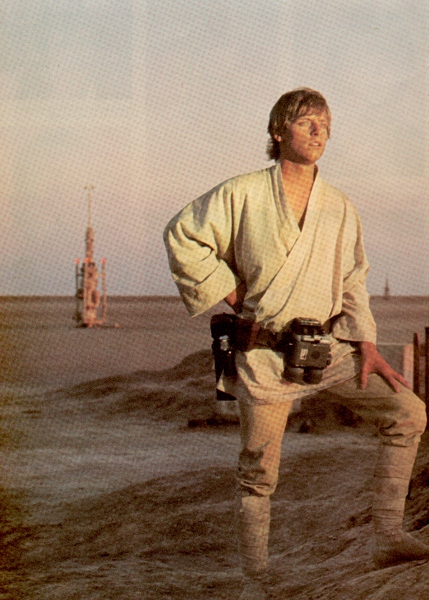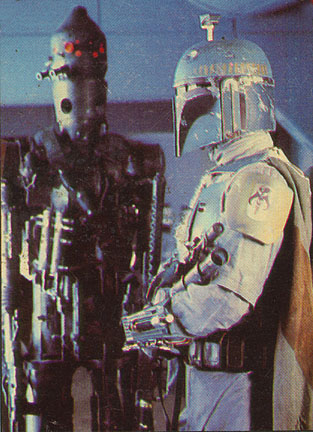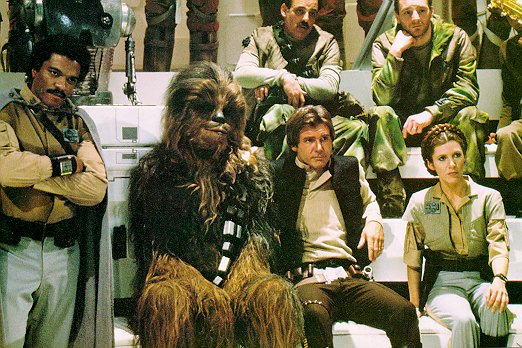
Step
1: Preparation
Step
2: Building the Winning Deck
Step
3: Playing In the Tournament
You've got the cards. You've read up on
all of the glossary entries and current rulings. You've played a little
bit, so you know how to play. Now what? What do you do with all those cards?
All that reading? All that playtesting?
You compete in a tournament!
Well, geez, Mike, I do want to play in a tournament, but, I'm not quite sure how. That's understandable. It's tough to enter an environment that is highly competitive. An arena filled with players that have been playing this game since day one.
There are a lot of players out there that are intimidated by tournaments and simply don't go. Most are collectors, they have the cards, but, either don't know how to play, don't have the time to play, or are just simply afraid to play. Still, many others are new. They have some cards, enough to make a couple of decks, but, still lack many important rare cards. While they do have cards to play, their inexperience intimidates them from playing. They know they'll be pitted up against very experienced players, possessing many of the cool and powerful rare cards. Knowing this, they choose to simply play with friends or simply for fun. However, by doing that, they miss out on a great playing experience.
In this article, I'll explain several steps that can help you become more successful in tournaments. It will also help you have more fun and get the most out of your tournament experience.
Despite what most players think, it's not enough to look up a deck on the Internet, find the appropriate cards and find a tournament, all a mere day away from tournament time. This is one of the most common mistakes many tournament goers face. The lack of preparation.
A) Finding a Tournament:
The first thing you can do to prepare for a tournament is to locate a tournament at least a few days before the actual event. Many tournament directors are good enough to post their tournaments well in advance of when they're going to happen. Decipher requires that these events be posted at least a week prior to the actual event. This give you time to study the terrain.
To locate a tournament in your area, go here.
B) Study the Terrain:
Studying the terrain is what I refer to
getting information about the common decks being played in the area where
the tournament is  being
held. Many different towns and regions have different playing styles. In
some areas, Hidden Base is the most popular deck, still others prefer Operatives,
or Hunt and Destroy the Jedi. Contact the tournament director that's holding
the tournament that you want to go to. Ask him for any details about the
tournament: What types of decks are popular? What's the entry fee, if any?
What's his opinion about card sleeves?
being
held. Many different towns and regions have different playing styles. In
some areas, Hidden Base is the most popular deck, still others prefer Operatives,
or Hunt and Destroy the Jedi. Contact the tournament director that's holding
the tournament that you want to go to. Ask him for any details about the
tournament: What types of decks are popular? What's the entry fee, if any?
What's his opinion about card sleeves?
These details can be invaluable in how you tailor your decks in preparation to the upcoming tournament.
C) Deck Management:
Your decks are the single most important things you'll have at a tournament. How they're constructed and how they work against other decks will determine how well you do in a tournament.
Building your decks the evening before a tournament is just begging for trouble. Also, getting a deck from the Internet, even though they may be touted as successful, is also destined to failure. Generally, the most successful decks that I see in tournaments are the ones that have been built early from scratch, playtested, and improved over several tournaments.
Building a deck early gives you time to work out the kinks of that deck. Perhaps, you missed an important card. Maybe, the deck needs more of a particular card, maybe less.
Some time ago, I built a Light Side Mains and Toys deck to compete in a Tournament in Las Vegas. I foolishly built it the night before the tournament. Well, during the tournament I realized that I had forgotten to put in Goo Nee Tay. Against Hunt Destroy decks back then, Goo Nee Tay could have helped me considerably. This mistake hurt, and could have easily been avoided if I had taken the time to test the deck before (If I had made it earlier, I would have had time to do this).
There are more benefits to building and
testing a deck very early before a tournament. It's important to understand
the 'nuance' of the deck. Every deck has a way to be played. Each card
in the deck interacts with the other cards in that deck to form a particular
style or nuance. To learn that nuance, you come to know what to expect
from the deck, you know how it works, and how it will work against other
decks.

For instance, I had a TIE deck that I
absolutely loved. I played with this deck in several tournaments. I knew
what that deck could do! I knew it had a terrible weakness against Capt.
Han in the Falcon. However, I knew that how many Tallon Rolls I
had. I knew what TIE's I had that could Tallon Roll. I knew I had clouds
and my Obsidian TIE's were really tough there. I just knew that deck and
what it could do. That gave me a lot of confidence. Even against decks
that were technically superior.
D) The Buddy System:
Many of the more successful players usually come to tournaments with friends. They carpool together, playtest together and can go over strategies with each other.
I have a friend, Paul Egedi, who went to tournaments with me. We played each other and learned the game from the very start. He and I traveled half way across the country to play in a regional qualifier in Provo, Utah. With his help, I was able to win that tournament and win my place in the '96 World Championship.
The only draw back to this is there's the chance you'll have to play against your buddy. If this happens, good luck. Remember, though, you'll be driving home with this guy, so play nice. Despite this draw back, it's still very advantageous to have someone around to play against. The best advantage is that it gives you someone to play your deck against.
Next up, Step 2- Building a Winning Deck.
